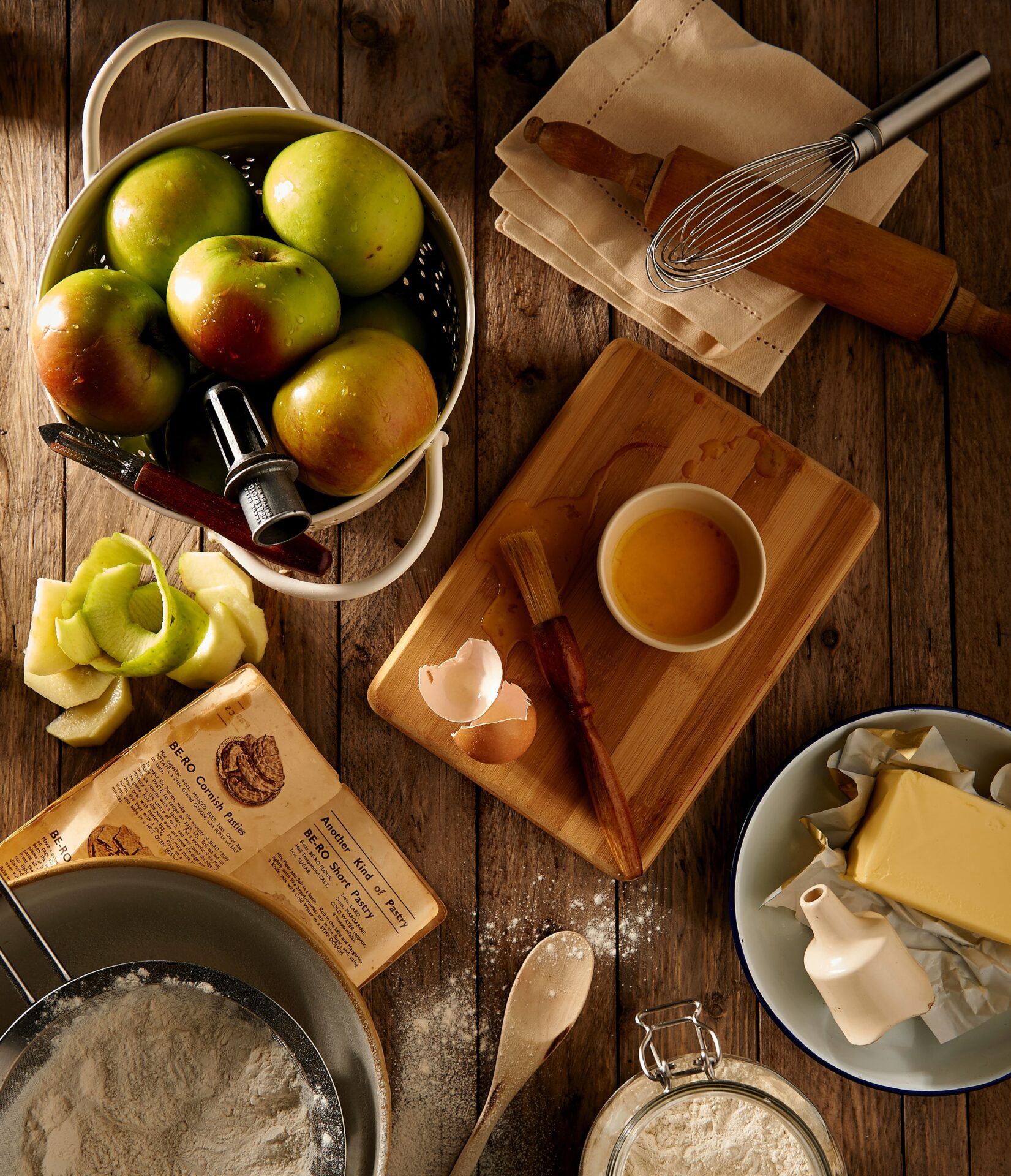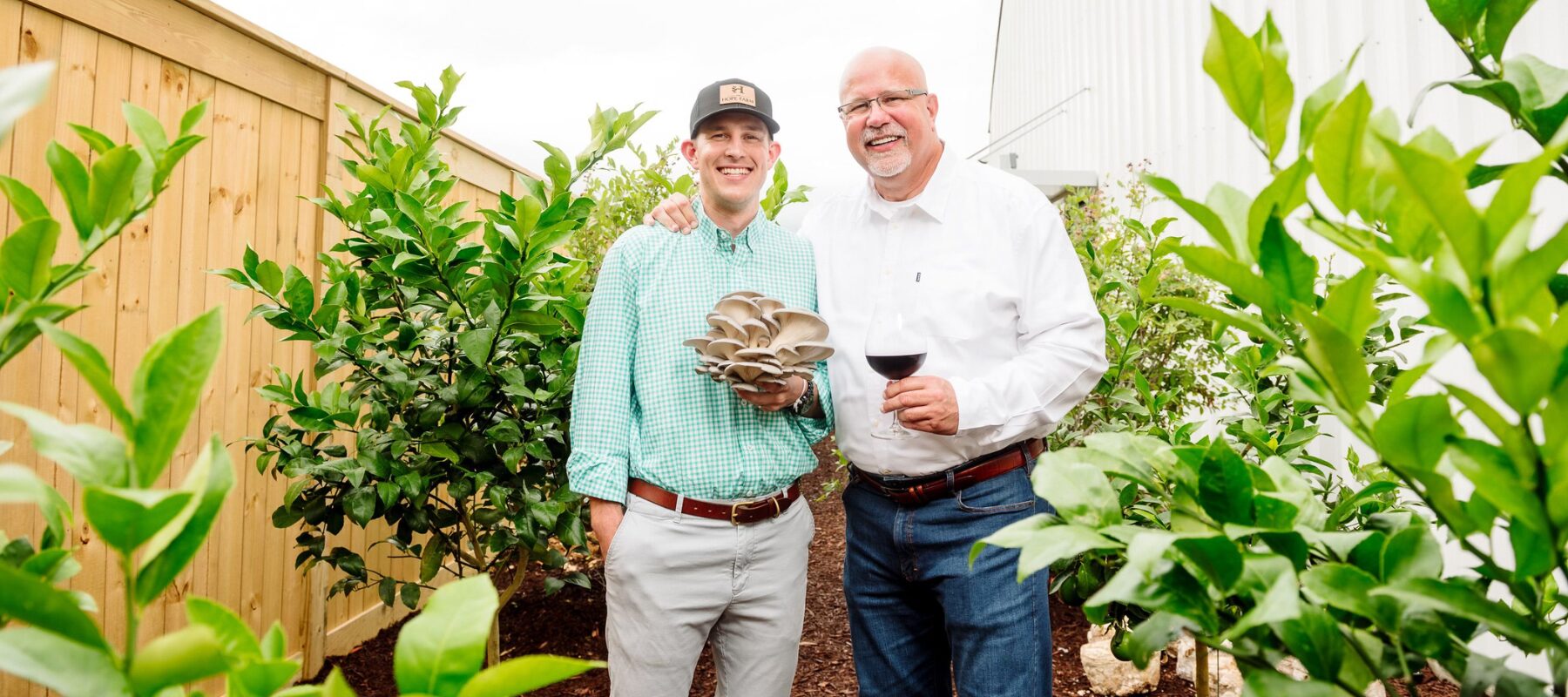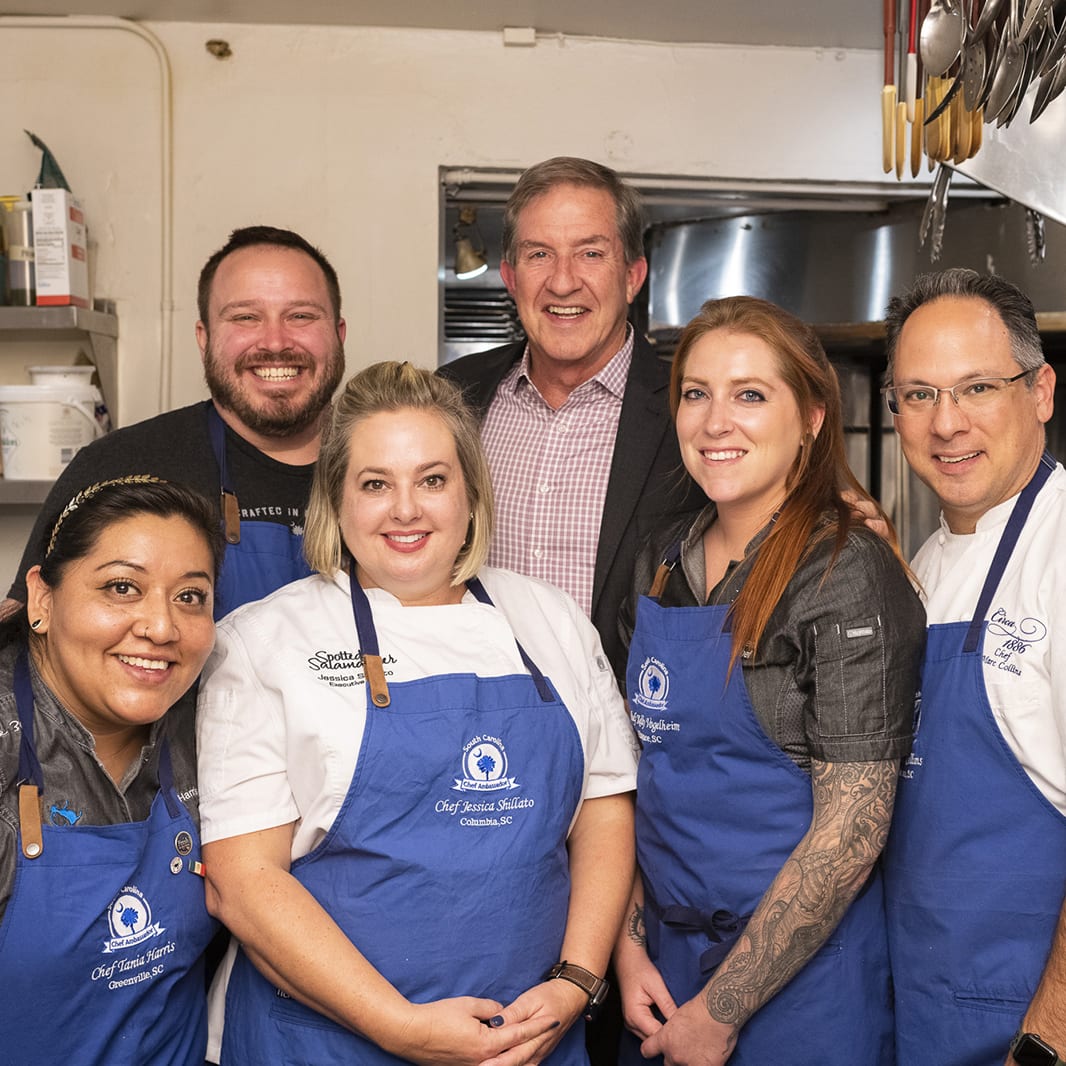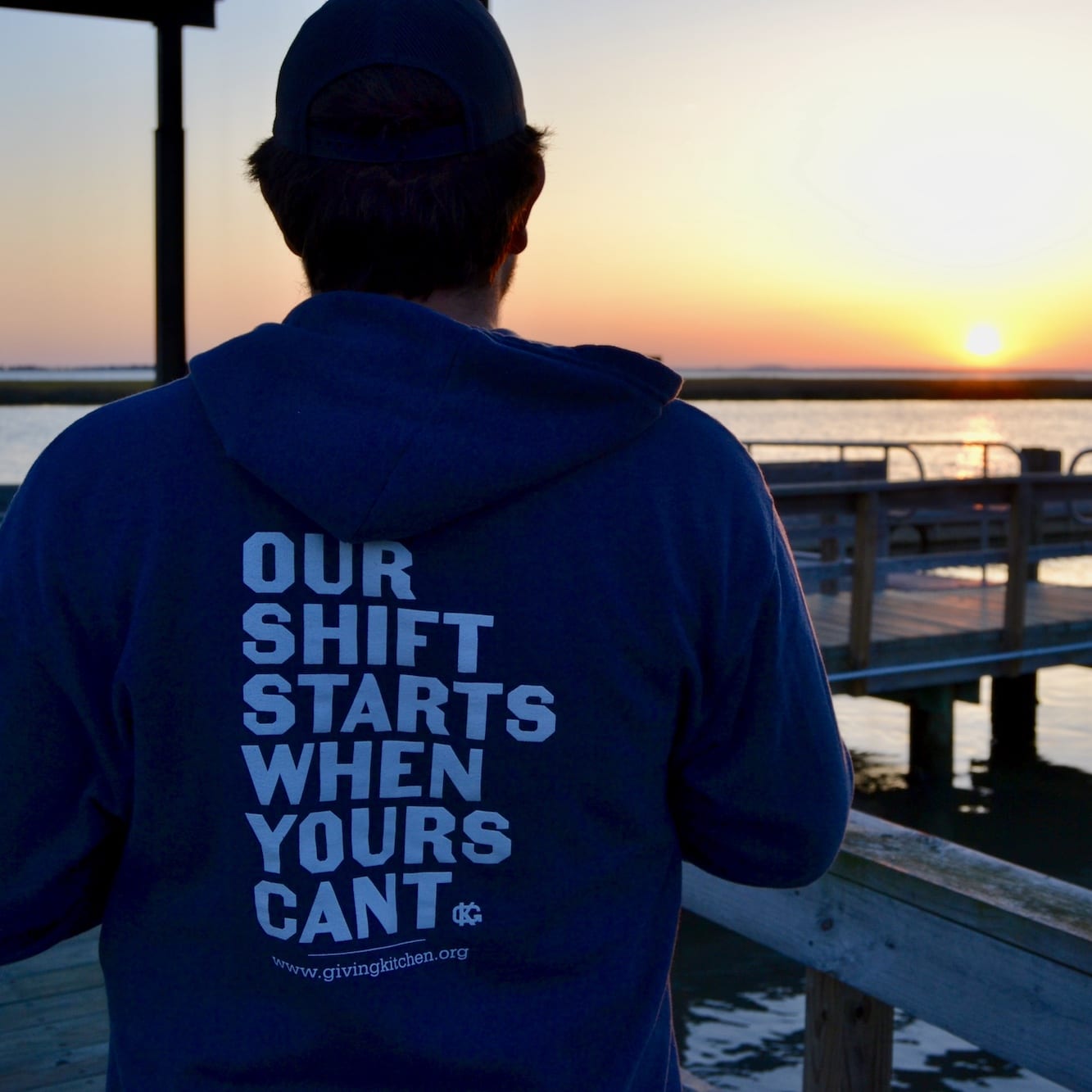In Fairhope, Alabama, there’s a rich harvest to be found at Hope Farm
Here, bite this.” Robert Evans, co-owner of the Hope Farm in Fairhope, Alabama, hands me a tiny leaf he’s plucked from a tray. I take a cautious nibble, noting the mischievous twinkle in Evans’ eye, the effect amplified by the purple glow permeating the hydroponic gardening container we’re in. “You think it’s going to get hot, yeah? But it doesn’t!” He’s right. My tastebuds detect wasabi flavor and brace for heat that never comes. I’m chewing on wasabi arugula, and the microgreen is one of multiple crops the Hope Farm grows for use in its restaurant. “I love to watch people try it, but I really love what it adds to a dish; you throw just a few leaves in a salad, and wow!” Evans adds.
Produce cultivated within feet of where it will be cooked and served is part of the reason the eatery, event space, and urban farm (about a block off a main thoroughfare) has become one of the most popular places in Fairhope, an artsy enclave of 23,000 that’s not far from big-city Mobile or the Gulf ’s sugar-sand beaches but with fewer crowds and a laid-back pace.
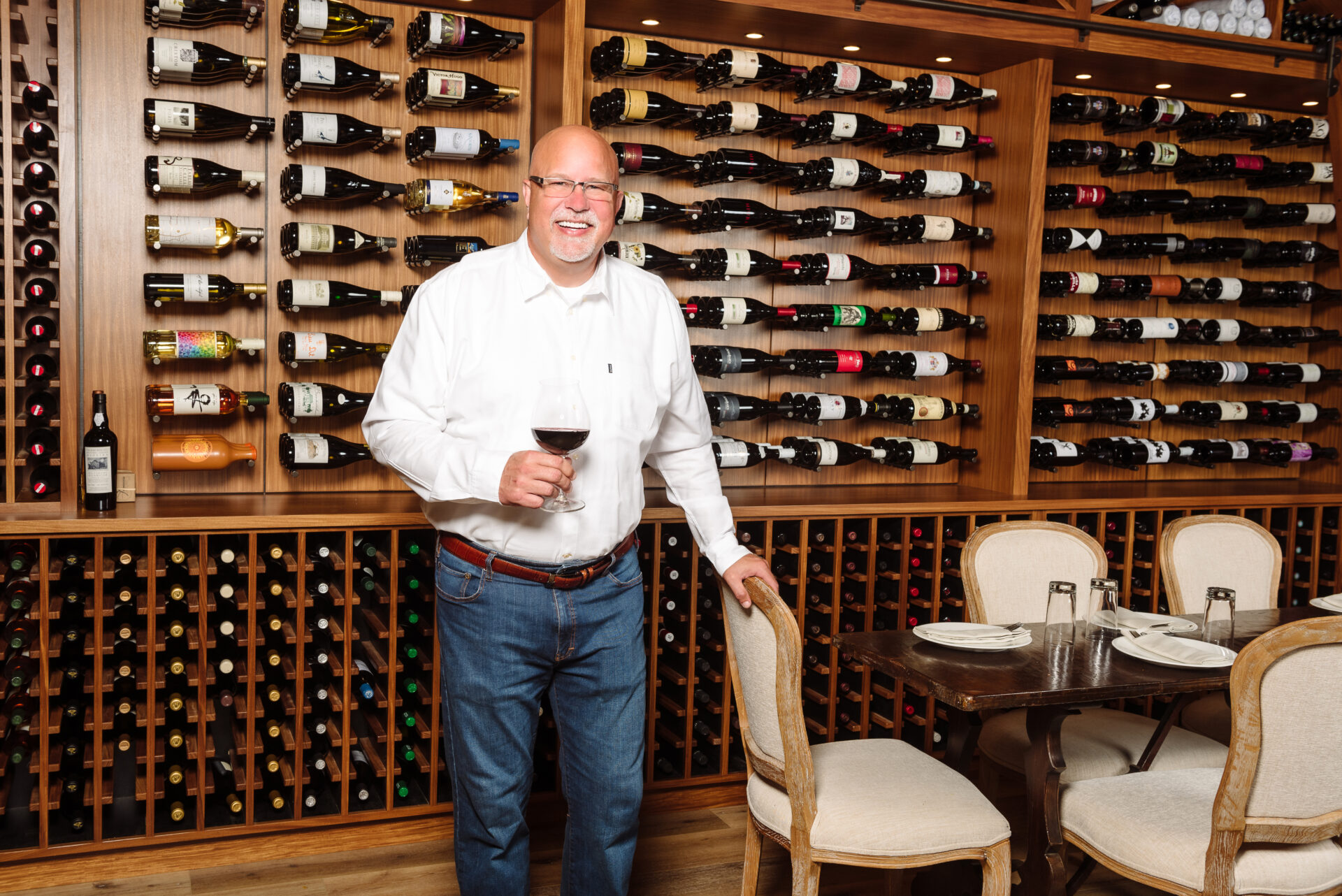
Evans started the Hope Farm with his son Bentley in 2020, and it began, as its name implies, as a container farm set to sell its harvests to area restaurants. But soon, as things are wont to do on a farm, that idea grew: Stemming from Evans’ personal passion for good wine, the vision expanded to include a wine bar. Then that plan quickly blossomed, too. Today, with two dining spaces, multiple indoor and outdoor gathering spots, a Wine Spectator-honored wine program, garden-to-glass cocktails, a burgeoning bourbon collection, and a calendar packed with culinary events from mixology classes to wine and beer dinners, the Hope Farm aims to offer the Fairhope community not just dining but an experience.
Chef Adam Stephens, whose chops include time at the lauded Broadmoor hotel in Colorado, came to the Hope Farm in 2021 and is helping the Evanses make that hope a reality by relying on what he calls “a chef’s dream,” saying, “I continually collaborate with our resident farmer, and for our space”— about an acre—“we grow so much, and it’s all grown sustainably.”
In summer, blueberry bushes hang heavy with frosted indigo fruit near the parking lot, and in raised beds, cucumber vines curl. Come fall, ripening satsumas glow sunset orange on trees edging the patio. Heirloom tomatoes, squash, blackberries, peppers, carrots, turnips, rainbow chard, olives, an abundance of herbs, and more join the seasonal harvests. And two shipping containers on the property’s “back 40,” as Evans jokes because they’re 40 feet long, hold hydroponic greens like bok choy and arugula, plus more than 10 varieties of mushrooms, from lion’s mane and chestnut to trumpet, enoki, and oyster.
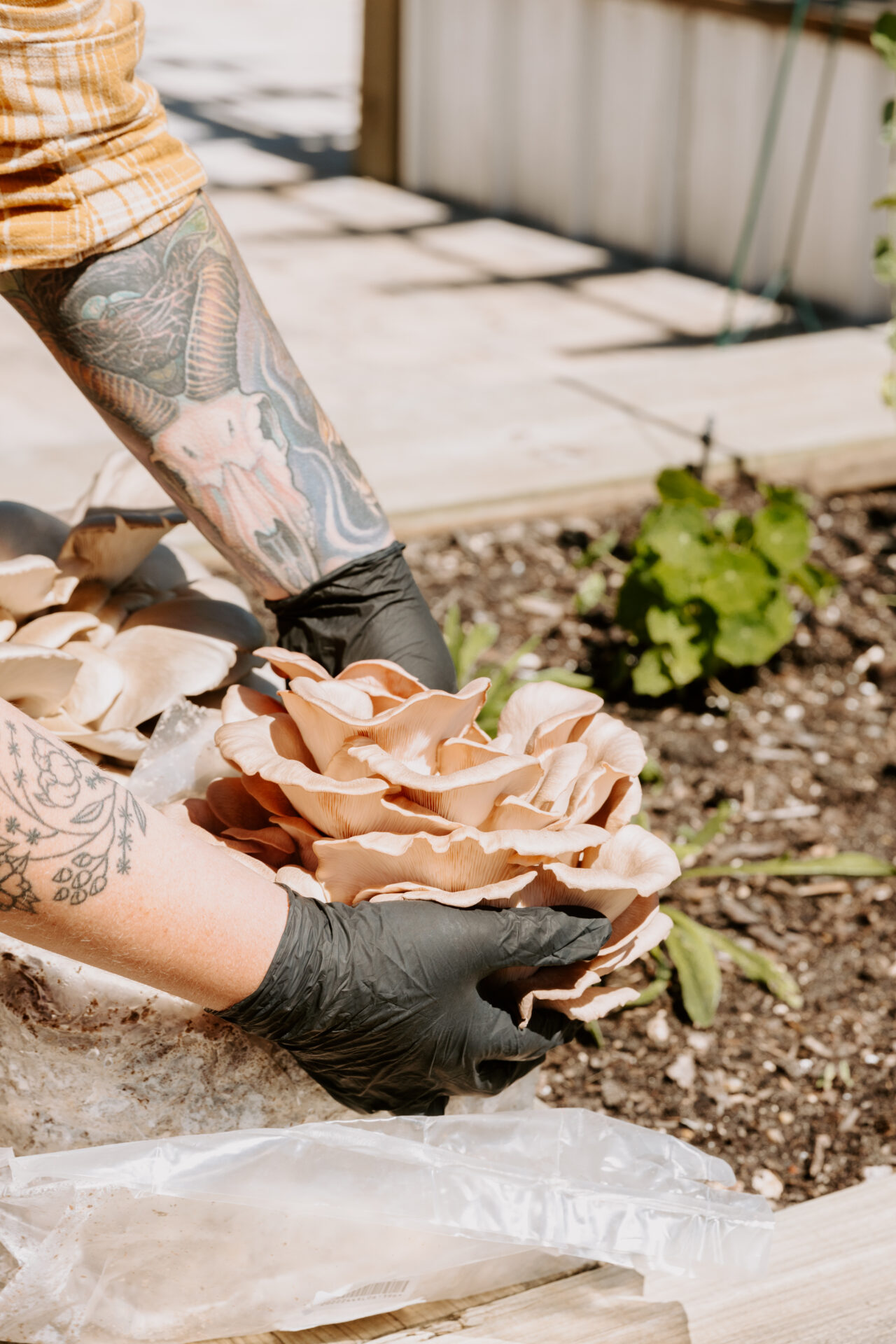
“It’s rare for a chef to have all this right at their fingertips,” Stephens says. He takes full advantage. Green accordion tomatoes add tang to housemade thousand island dressing. Olive oil is infused with just-picked herbs. The 150 pounds of mushrooms harvested each week make multiple menu appearances—they’re key players in a rotating roster of farm veggies topping chewy flatbreads. They embellish steaks, their textures silkened and earthiness heightened with a quick sauté. Enrobed in velvety mornay, they crown hefty burgers. And they’re mounded atop sourdough, smothered in sharp, melty fontina, and punctuated with pickled shallot to create mouthwatering mushroom toast.
The bounty of Mobile Bay and the nearby Gulf Coast also influences Stephens, with fresh fish and oysters inspiring nightly specials and sweet blue crab anchoring his twist on an Alabama tradition—frills of fresh dill stirred into a West Indies salad. He gives classic short ribs a personal touch, too, slow braising the beef in a salty ragu built on boiled peanuts to be ladled over creamy, coarse-ground grits. “It’s a childhood memory on a plate,” he says. “It harkens to days growing up in Florida, when my dad and I would stop by farm stands for boiled peanuts.”
Stephens stresses how the farm’s abundance aids him in achieving his number-one goal. “There are so many trends in restaurants you can try to stay in or ahead of, but food that tastes good, that’s the timeless cooking style,” he says. “That’s all I’m interested in doing, and the farm makes it easier.”
Evans is also interested in flavor but puts equal emphasis on creating connections with events like Sunday Suppers, where guests come together for themed, family-style meals. “Even our repeat guests end up sitting with people they don’t know, so it’s a fun way to help our community be more communal,” he says.
This focus on folks as much as farm and food encompasses employees, too. “We want them to love it here, so we empower them to get involved so they see they have a part to play in our and their success,” Evans says.
This philosophy sealed Stephens’ decision to join the Hope Farm. “They are incredible owners. I fell in love with the property, but it was really Robert and Bentley,” he says. “We’re a team, and that enhances all we do.”
keep reading
On the Road
5 South Carolina Farm to Table Chefs
When planning your next trip to South Carolina, check out how these five chefs use Certified South Carolina ingredients straight from area farmers: Marc Collins, executive chef at Circa 1886 in Charleston, takes a deep dive into South Carolina’s history and the African, […]
Roots
Cultivators: Giving Kitchen
The food industry-supporting, Georgia-based nonprofit Giving Kitchen is turning its eye toward substance abuse recovery–and a major expansion.
Roots
Meet Paola Velez, the Pastry Chef Behind Bakers Against Racism | Video
Paola Velez shares her connection to her plantain sticky buns and how its a tasty twist on a classic that pays homage to her heritage.


